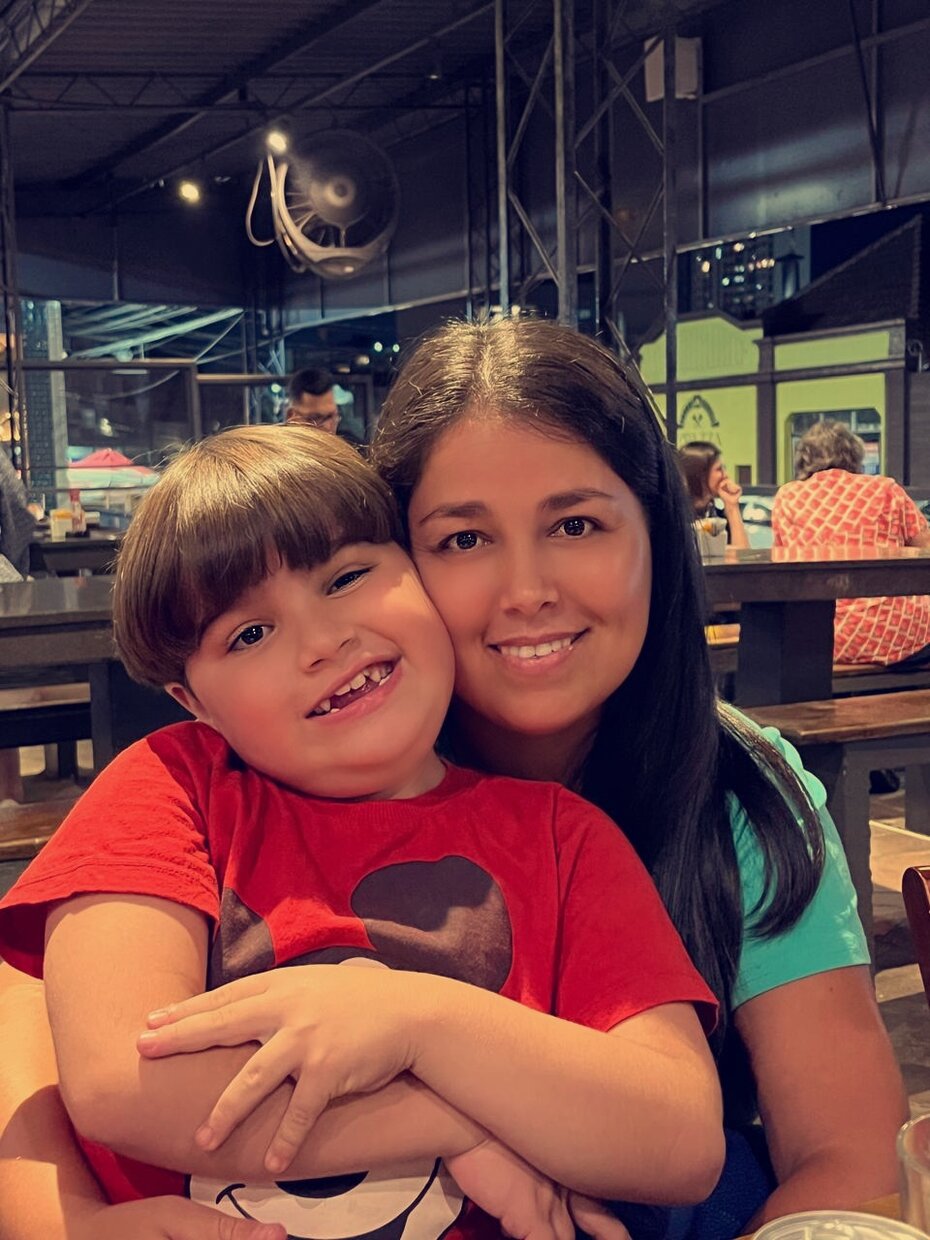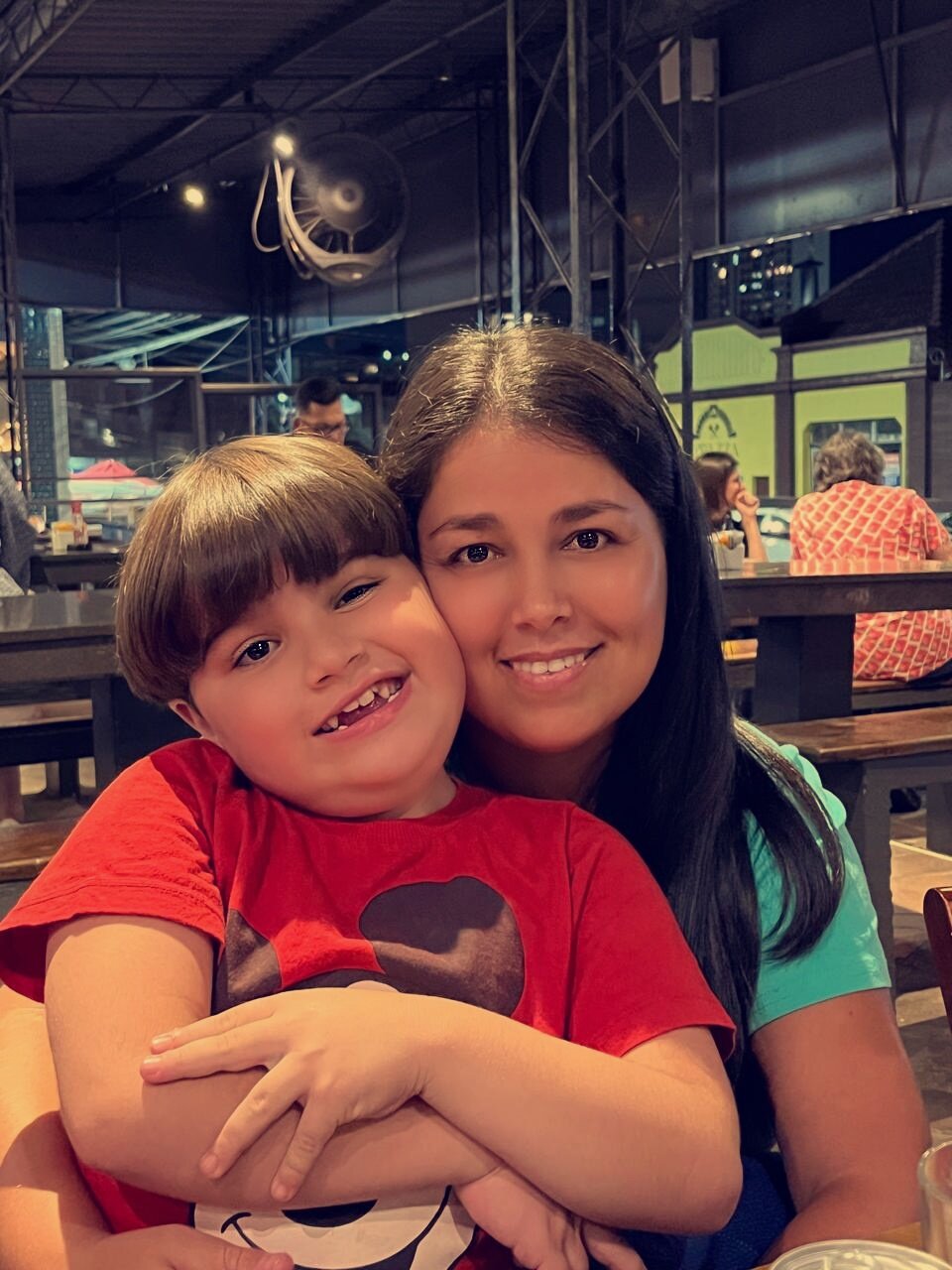“Today my son has quality of life”: a mother's account of rare disease

my name is Dina Pinheiro da Silva and I'm the mother of Kalebi Júlio Martins, my 9-year-old boy, who was born on June 16, 2016. We lived in Novo Hamburgo, Rio Grande do Sul, and a few months ago our life changed a diagnosis that took years to arrive: Duchenne muscle dystrophy (DMD), a rare genetic disease, a rare genetic disease, a rare genetic disease, a rare genetic disease Progressive, which affects the muscles. The confirmation came in November 2024, when Kalebi was 8 and 5 months. But our search began long before that - it was three and a half years piercing the SUS, trying to understand what was happening to my son. He began to walk at the ends of his feet with three years and, at four, began to fall frequently. He had constant pain in his legs and belly, and suffered from daily vomiting. All unanswered.
Kalebi even received a diagnosis of support autism 1, which further delayed the discovery of the real cause of his difficulties. It was a very difficult period. He needed help for everything, even to keep the materials in his backpack at school. I didn't have the same quality of life as other children. There, for the first time, we were really welcomed. With a dedicated and experienced team, we finally got the correct diagnosis. Kalebi began drug treatment and, with the report in hand, we got vacancies for physiotherapy at Feevale University , right here in Novo Hamburgo. This transformed our routine.
Care - Today, Kalebi does physiotherapy three times a week -second and aquatic solo to Tuesdays and Fridays. In the afternoon, it goes to school, where it is very well maintained. He loves the food made from the school aunts and is in love with drawing. Don't paint much, but drawing is your passion. He also loves to go to the aquatic physio and dreams of a day to swim and ride a bicycle on the street. And I believe he will get it. The pains diminished, he stopped vomiting and is stronger. It still gets tired easily, but actively participates in school, talks a lot and loves inventing stories.
confrontation - but not everything was easy. When I heard the diagnosis, my world collapsed. It was like reliving a grief. I lost my son Nicolas at age 8 for leukemia - exactly the age that Kalebi was when we discovered the DMD. I asked God at that time to give me strength to continue. Kalebi arrived, and although she never replaced her brother, helped me to follow. Receiving this second blow was as if life was trying to get myself out once again what I love the most. Until I realized how much Kalebi was improving. I started looking for help for myself too. That's when I understood: Life was not over. Yes, we had a long road, but we were not alone.
while there is life, there is hope
courage - The house of the rare changed our story. Therefore, I leave here a message for all mothers and families who live with rare diseases: do not give up. As long as there is life, there is hope. And as long as there are real, dedicated professionals, there will be ways. It will not always be easy, but it is possible. Yes, there is a light at the end of the way - as happened to us. And if I can want something to read me now, you live with whom you love as if there is no tomorrow. Because each day with them is worth more than any diagnosis.

